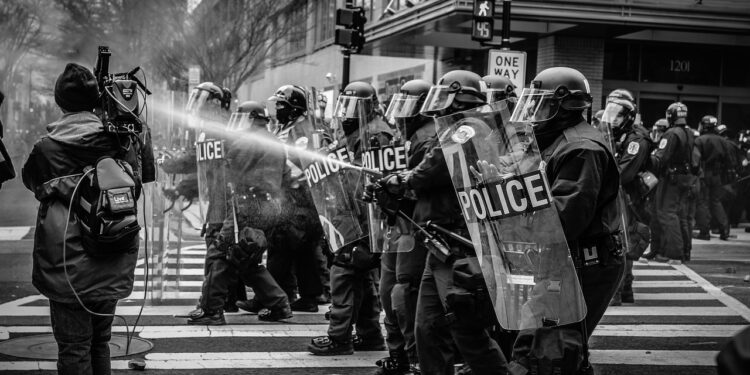The death of George Floyd on May 25, 2020, sparked a wave of protests and calls for justice that spread across the United States and around the world. Floyd, a 46-year-old black man, died after a white police officer, Derek Chauvin, knelt on his neck for over nine minutes during an arrest in Minneapolis, Minnesota. The horrifying video of Floyd’s final moments went viral, galvanizing people to take a stand against police brutality and systemic racism.
The tragic death of George Floyd is not an isolated incident. It is just one of many cases of African Americans being killed by law enforcement officers in the United States. The Black Lives Matter movement emerged in response to these cases, calling attention to the disproportionate use of force against black people and demanding justice and reform. Floyd’s death became a catalyst for a long-overdue reckoning with police violence and racial injustice in America.
In the weeks and months following Floyd’s death, protests erupted in cities and towns across the country, with millions of people taking to the streets to demand justice for Floyd and other victims of police brutality. These protests were met with a heavy-handed response from law enforcement, further highlighting the need for systemic change.
One of the most significant outcomes of the protests was the widespread calls to defund the police and reinvest in communities. Advocates argue that the current system of policing is not working, with too much emphasis on punitive measures and not enough on community-based solutions. Calls to reduce funding for police departments and redirect resources to social services, mental health programs, and education have gained momentum in the wake of Floyd’s death.
The legacy of George Floyd also includes a renewed focus on police accountability and reform. Chauvin, the officer responsible for Floyd’s death, was charged with murder and manslaughter and later convicted on all charges. His trial was closely watched by the public and served as a test of the justice system’s ability to hold police officers accountable for their actions.
In addition to Chauvin’s trial, Floyd’s death has prompted a broader conversation about the need for systemic changes in policing, such as the banning of chokeholds, increased transparency and accountability, and the demilitarization of law enforcement agencies. These reforms are essential to preventing future tragedies like George Floyd’s death and building trust between police and the communities they serve.
The legacy of George Floyd is a turning point in the fight against police brutality and racial injustice. His death has sparked a global movement for social change, energizing activists and ordinary citizens alike to demand justice and equality for all. While much work remains to be done to address the root causes of police violence and systemic racism, Floyd’s memory will continue to inspire a new generation of leaders and advocates to push for a more just and equitable society.











